
Opinions
16:04, 02-Sep-2018
China's reform and opening-up 40 years strong: Dates on a napkin
Updated
15:09, 05-Sep-2018
Cheng Dawei
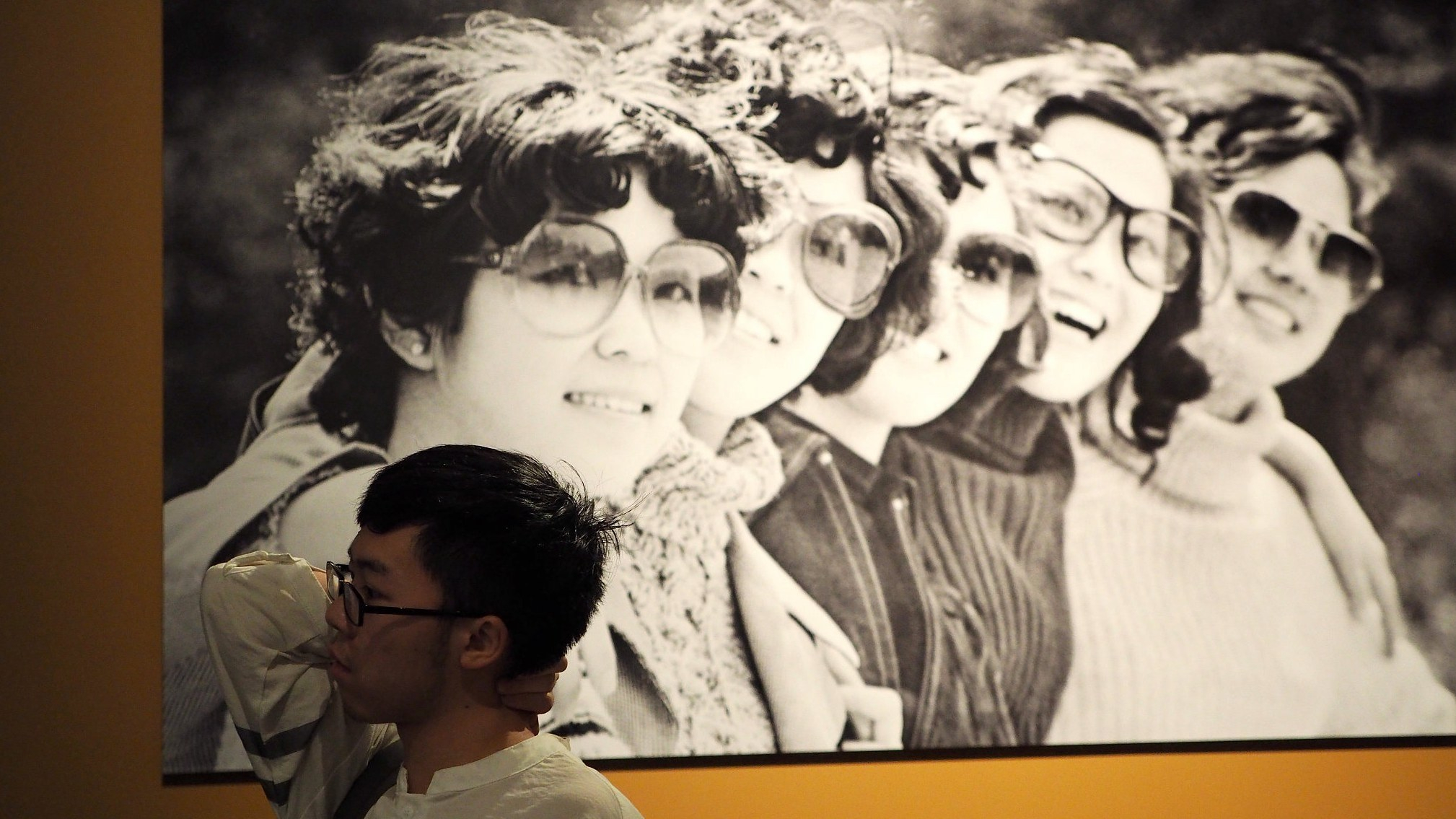
Editor's note: Cheng Dawei is a professor at the School of Economics, Renmin University of China. She is also a Fulbright scholar. The article reflects the author's opinions and not necessarily the views of CGTN.
Not long ago, I was having dinner with an American friend on the top floor of a mall near my university. My friend was surprised to see the bustling crowd and delicious food from all over the world. "Fifteen years ago, this site was a farmland on the outskirts of Beijing," I told him.
Then, we began to talk about the changes in China over the years. As I spoke, I wrote down some important dates on a napkin.
In the late 1960s, my father returned to a small village in northeast China from his job as a university teacher. As he recalls, it was very cold there. In order to prepare for my birth, my parents borrowed a basket of coal to heat the kang (a heatable brick bed) to keep it warm. It was said that these coal briquettes, mixed with more ash, didn't burn well and creaked.
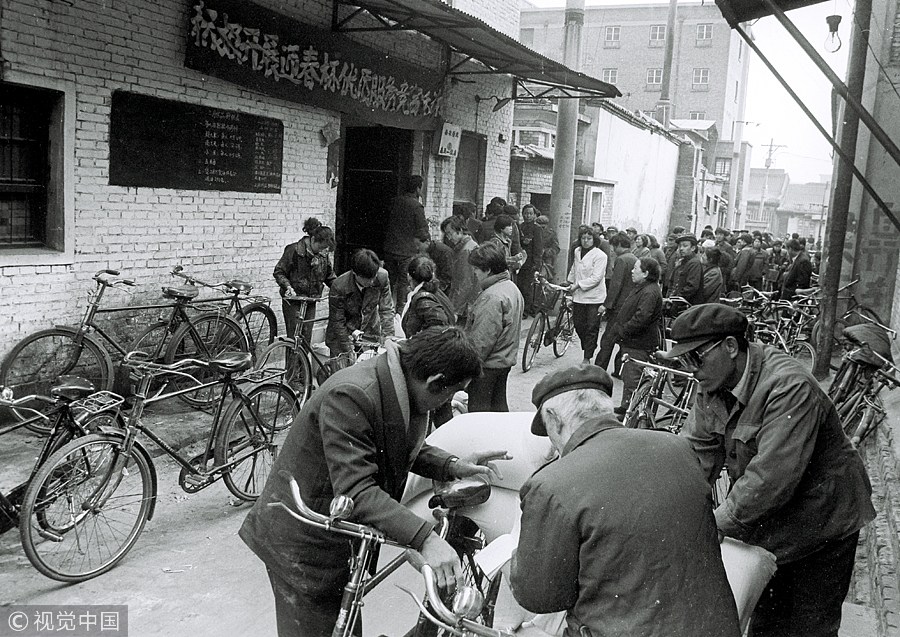
Citizens went to the grain store to buy grain with ration stamps in Shanxi Province, China in 1991. /VCG Photo.
Citizens went to the grain store to buy grain with ration stamps in Shanxi Province, China in 1991. /VCG Photo.
In the 1970s, the four major nuptial items for an average family were radio, bicycle, watch and sewing machine. My parents bought a transistor radio. Listening to the story of Yue Fei (a patriotic army general of the Southern Song Dynasty) every day was the fondest memory of my childhood.
In the 1980s, China entered a period of reform. When I was in high school, Teresa Teng's songs were already popular, brimming with humanity and youthful spirit. Songs like "We Are the New Generation of the 1980s" express the ideas from the bottom of our hearts.
In 1986, China began to seek to restore its membership in the General Agreement on Tariffs and Trade (GATT) and embarked on opening up. Back then, I was studying economics at a university in Beijing, and my study of economics had expanded from On Capital to include Western economics.
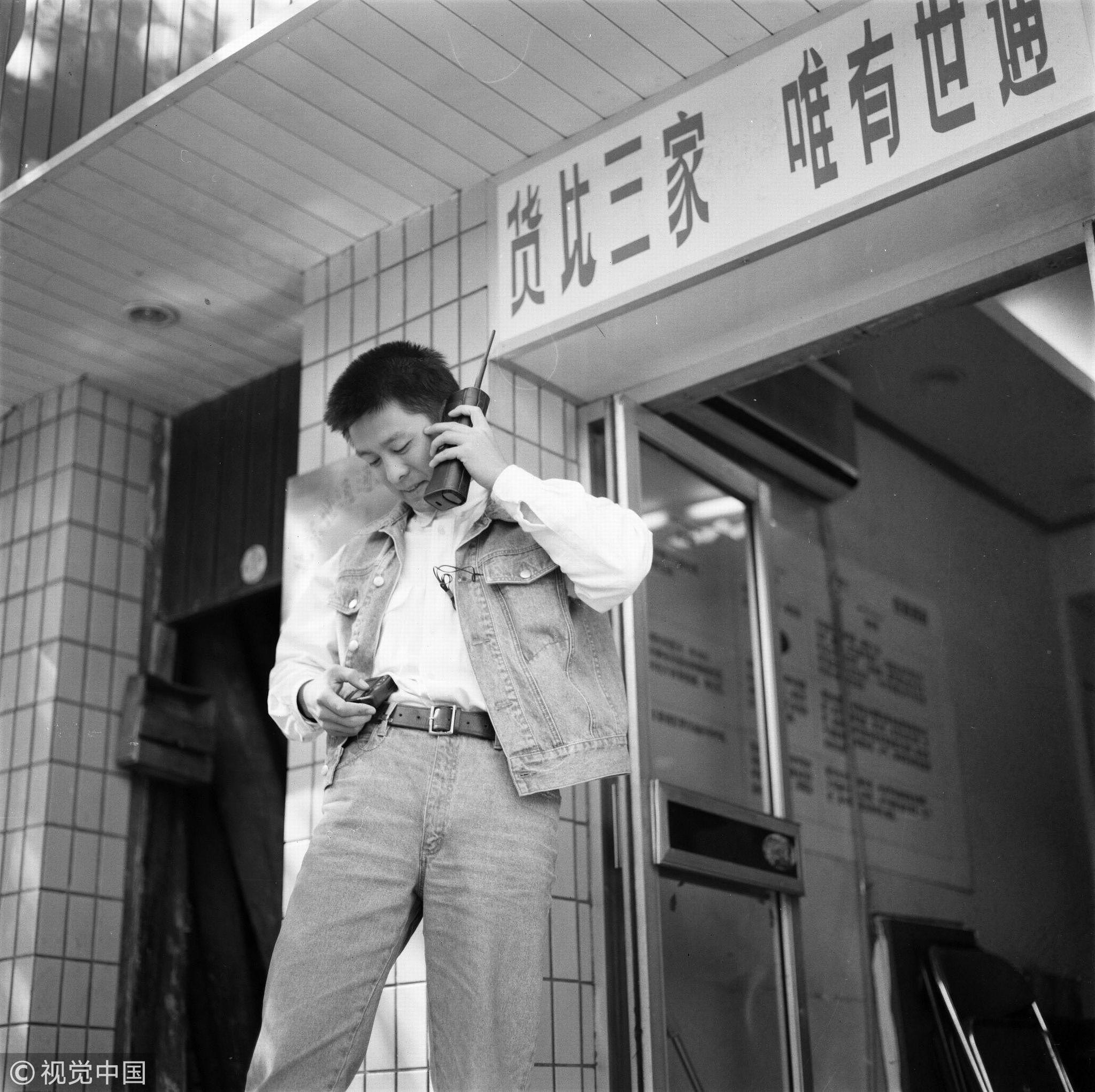
A person was watching the pager while playing with his cell phone in Gulou Street, Beijing, China, in 1996. /VCG Photo.
A person was watching the pager while playing with his cell phone in Gulou Street, Beijing, China, in 1996. /VCG Photo.
My memory of the college years is all about the physical hunger for food and the academic hunger for knowledge. There was a food ration system in the 1980s, in which each student received ration stamps each month and saved some food stamps in exchange for small commodities such as socks.
Food in the school cafeteria was affordable and delicious. Fifty cents of braised meat and 10 cents of meat rolls would still make my mouth water whenever I recall it. The reform and opening up provided us with more opportunities. Doing part-time jobs was able to help out with my university expenses.
In the 1990s, the Chinese economy was developing fast. Electronic products, for example, made breakthroughs every few years. The first big expense I made after I got a job was to buy a fixed-line telephone. I got a discount as a teacher and spent 4,000 yuan to install it. It was my savings of nearly one year. Later, I bought a pager and then my first desktop computer.
By the end of the 1990s when I decided to go abroad, we had email, and the rich people had cell phones. But after I went to the Silicon Valley, I felt we were lagging behind, because e-commerce was catching on in the US and they already entered the era of the information economy.
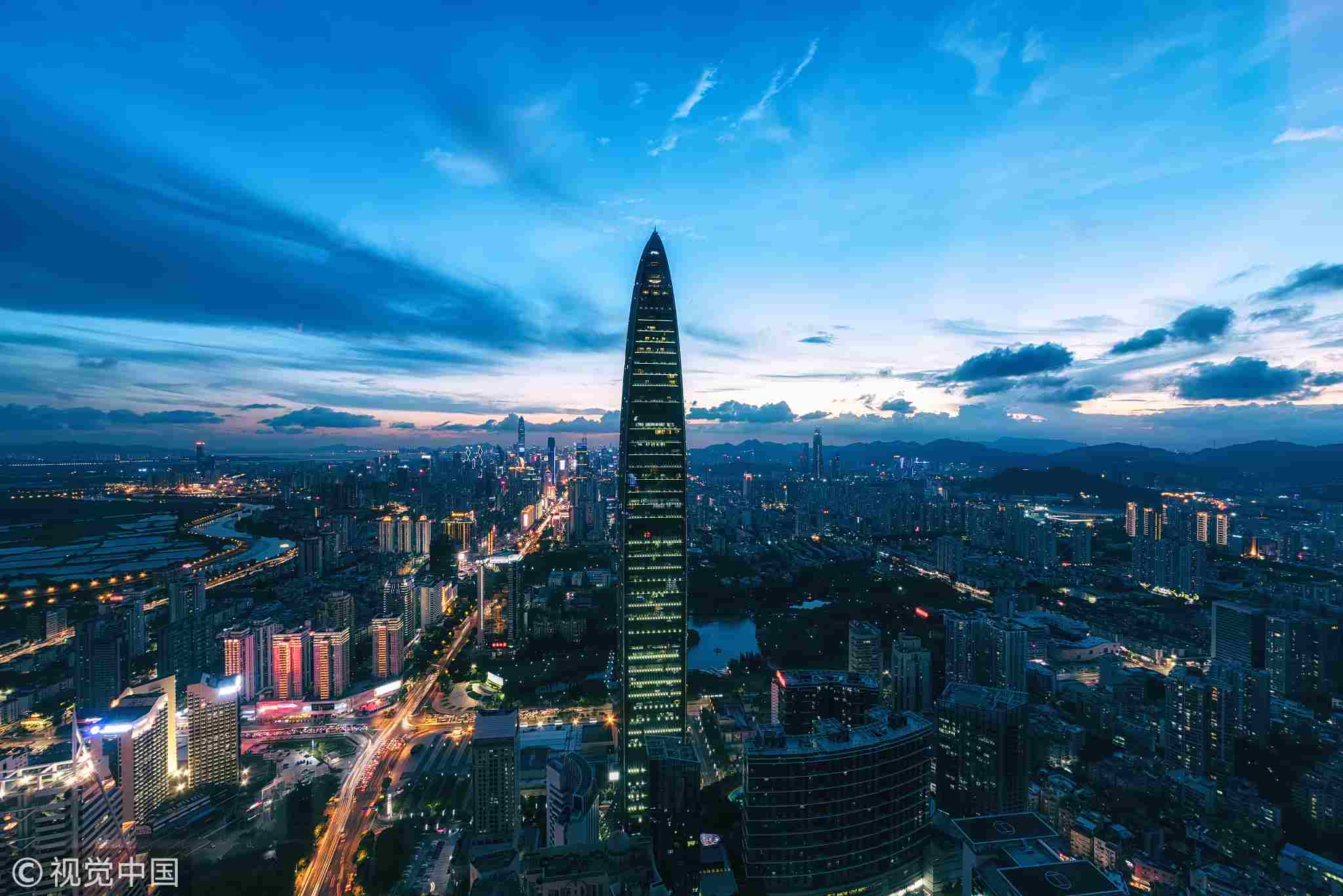
The city scenery of Shenzhen, one of the earliest opening cities in China. /VCG Photo.
The city scenery of Shenzhen, one of the earliest opening cities in China. /VCG Photo.
In the final year of the 1990s, I attended the WTO Ministerial Conference in Seattle. That was the beginning of my international life. At the Seattle conference, delegates from more than 140 countries argued over numerous issues.
I saw the wide gap between the rich and the poor countries and was privileged to be a participant in the process of international rulemaking. The Seattle negotiations collapsed, which was the first failure of the US-led postwar multilateral system.
Then we entered the 21st century. I have visited nearly 50 countries in less than 20 years. I can see great changes in China every year, and feel the fast integration of China into the world.
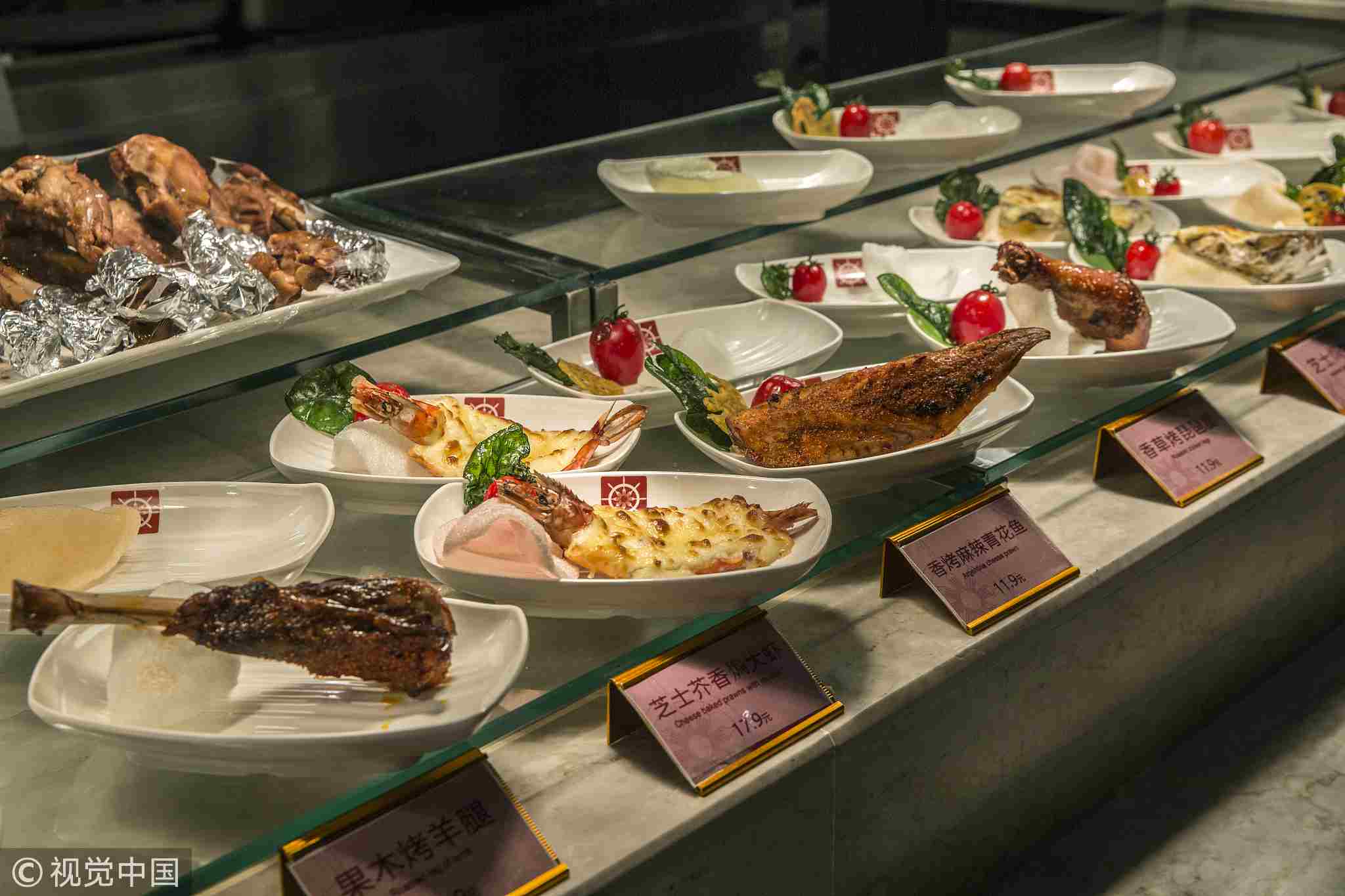
A buffet restaurant in Wangfujing Street, Beijing, China. /VCG Photo.
A buffet restaurant in Wangfujing Street, Beijing, China. /VCG Photo.
In 2001, I went to Qatar to attend the ministerial meeting on China's accession to the WTO. There was no direct flight, and I had to take several connecting flights to get to Qatar. Today, China is well-connected by air, high-speed rail and highway, and has good and easy access to anywhere in the world.
When I wrote 2018 on the napkin, we were done with eating. We traveled back into a period of history over a meal. My friend admired the richness of my life. I said that the development of China has given me such an opportunity to experience the Cultural Revolution, reform and opening up and international events. I feel that I have nothing more to ask for in my life.
When I asked the waiter if he could take a picture for us, the post-90s young man said in English, "Why not?" Then, pointing to the QR code at the corner of the table, he said, "you may pay by scanning the QR code here." My friend said, "let's go Dutch." I said, "despite the trade war between our countries, we cherish peace and hospitality in China. The dinner is on me. Plus, you don't have WeChat Wallet, do you?"

SITEMAP
Copyright © 2018 CGTN. Beijing ICP prepared NO.16065310-3
Copyright © 2018 CGTN. Beijing ICP prepared NO.16065310-3